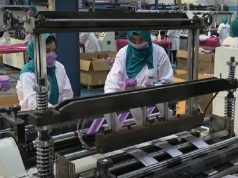The Senegalese novelist Mariama Ba has given birth to an epistolary novella named So Long a Letter (1979), which canvasses Senegalese women’s condition and experience within the threads of the Senegalese culture. The novella, in fact, tackles several themes and issues such as the perception of marriage and its concomitant rules in the Senegalese culture, most importantly, how marriage as an institution weights down women as it saturates them with stifling and discriminating demands. Accordingly, the novella recounts the story of Ramatoulaye, a widowed woman who reminisces about her childhood memories with her best friend Aissatou and laments the patriarchal facts of life that bucked them as adults. Ramatoulaye does this through the composition of a long letter in which she informs her friend Aissatou about her life as a widow and as a victim of polygamy. Following these lines of thinking, this paper addresses as a starting point the situation of marriage in the Islamic Senegal and how it frames wives and husbands. Moreover, the paper delves into the novella to excavate, on the one hand, patriarchy’s treatment of married women and to ring a bell about matriarchs’ attitudes towards these women, on the other.
There is little doubt that Senegal is prominent for its nuclear polygamous families that mushroomed during the 1970s and 1980s. Married life in Senegal is highly steeped in polygamous unions that use Islamic law as a pretext to open the gates for husbands to remarry. Accordingly, the Senegalese culture relies extremely on religion to conceal the humiliations women undergo in polygamous marriages. These societal discriminations include as well inheritance rules concerning widowed women, for families in law usually leave widows destitute of financial support after their husbands’ demise. Following this line of thinking, most Senegalese women are economically dependent on their spouses, the fact that exacerbates their situations as widows. In fact, one of the most known characteristics that engulf the Senegalese married life is the tradition of a go-between, meaning making the whole family intervene and form opinions about the choice of a certain bride, especially her family background. The latter is an indispensable element that, according to Senegalese beliefs, decides the validity or invalidity of a woman. All of those elements, in effect, decide Senegalese women’s oppressing fate that clusters around how they should approach marriage and abide by its rules.
Mariama Ba attempts to channel her views on Senegalese married life through her protagonist Ramatoulaye and her best friend’s marriage itineraries. The protagonist casts light, through the recounting of their stories, on the fact that a woman becomes an object, a commodity and a slave once she is married, namely the Senegalese culture perceives wives as dependent and passive creatures whose role is woven around serving their husbands along with their families in law. As a consequence, most Senegalese men tend to remarry because in the back of their minds, women have an expiration date which can be by virtue of their age or infertility. Having said that, ageism, infertility or even the dearth of large numbers of children, who are meant to help in agricultural activities, are usually foregrounded to sidetrack the wives from their husbands’ real motives which can cluster around the desire to have as many female partners as possible in the name of Islam, the fact that pushes women to accept blindly and passively polygamy and that cajoles them into forgiving their husbands’ potential betrayals. Accordingly, Ramatoulaye talks about how society ensnares women in the belief that being an extension is normal: “A wife must understand, once and for all must forgive; she must not worry herself about ‘betrayals of the flesh’. The important thing is what there is in the heart; that’s what unites two being inside”. Mariama Ba elucidates the idea that the married Senegalese woman is not only her husband’s possession but her family in-law too. In Senegal, the family in law is considered sacred, and it is a wife’s role to, offer herself to, please and serve her family in law, especially her mother in law. In this context, the protagonist states: “ This is the moment dreaded by every Senegalese woman, the moment when she sacrifices her possessions as gifts to her family-in-law; and, worse still, beyond her possessions she gives up her personality, her dignity, becoming a thing in the service of the man who has married her, his grandfather, his grandmother, his father, his mother, his brother, his sister, his uncle, his aunt, his male and female cousins, his friends”.
Maryama Ba shifts through her novella attention towards women who are steeped in the patriarchal ideology and who employ it so to subdue other women. She highlights primarily mothers-in-law and their clichéd and common expectations about and attitudes towards the brides-to-be. The author breaks down this line of thinking through Aissatou’s (Ramatoulaye’s best friend) story with her mother-in-law, for Aissatou’s mother-in-law Binetou could not swallow the idea of her son marrying a goldsmith’s daughter combined with the fact that Aissatou is educated and independent. As a way of vengeance, Binetou decides to raise a young girl who carries her name in order to be the second wife in the future. This suggests that women have, like men, the desire of exacting the wives’ agency and rendering them dependent crusaders and helpless creatures. The protagonist substantiates this idea by revealing how her mother-in-law and sisters-in-law deprived her from her deceased husband’s bequest, and how Senegalese widows suffer from this issue by contending: “Thus our family-in-law takes away with them a wad of notes, painstakingly topped, and leaves us utterly destitute, we who will need material support”. Surprisingly, women’s approach to women’s positions in the institution of marriage is that of inferiority and of self-sacrifice even when it comes to their daughters, for Ramatoulaye recalls how her own mother once told her in an attempt to convince her that “: a woman must marry the man who loves her but never the one she loves; that is the secret of lasting”. All of this, ultimately, designates how matriarchs contribute vehemently in the reproduction and perpetuation of patriarchal meanings of married women and of their roles, the fact that rings out loud because change is supposed to emerge from women’s unity at firsthand.
As a deduction, So Long a Letter is a novella that takes Senegalese marriage as one of its quintessential points of inquiry. The author shows through Aissatou’s divorce women’s rebellion against and refusal of the status quo that forces them to succumb to polygamous marriages. Yet, Ramatoulaye, the protagonist chooses to acquiesce in a fate that was constructed for her, for she perceives her act as an inward empowerment. Marriage, thus, weights down ethnic women as it swings between cultural axioms and the family’s interventions, the fact that renders it a suffocating penitentiary for women who are obliged to live in compounds with other women like in the harem. Maryama Ba’s aim is to unearth how the wanton Senegalese society is unapologetic about both its humiliation and confinement of married women, women who are envisaged to be silent conformists.





